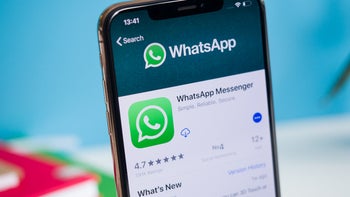With ads out of the picture, here's how Facebook will monetize WhatsApp

There are many different kinds of mobile payment services available depending on the phone in a user's hand. There is Apple Pay, Google Pay, Samsung Pay, and LG Pay just to name a few. And these create streams of cash for the companies providing this service. For example, Apple earns .15% of the amount of each transaction where Apple Pay is used. For example, if you use Apple Pay to cover a $200 purchase, Apple receives 30 cents. While that doesn't sound like a lot of money, Apple has been averaging over 11 million Apple Pay transactions per day.
The promise of getting paid a small percentage of millions of transactions every day is attracting another player to the business. The Economic Times reports that during Facebook's conference call last week (following the release of its latest quarterly earnings report), co-founder and CEO Mark Zuckerberg discussed plans to turn WhatsApp and Messenger into private platforms that will allow users to connect to businesses. This is similar to the plans that the Cross Carrier Messaging Initiative (CCMI) has for Android users through the Rich Communication Services (RCS) app that they plan on disseminating some time this year. RCS is the next generation of messaging for Android and the CCMI is made up of the four major U.S. wireless providers (Verizon, AT&T, T-Mobile, and Sprint).
Facebook could use commerce and business services to monetize WhatsApp
While talking about his plans, Zuckerberg said, "One example that we've been working on is WhatsApp Payments where you're going to be able to send money as quickly and easily as sending a photo." And the executive even revealed a timeframe. "I'm really excited about this, and I expect this to start rolling out in a number of countries and for us to make a lot of progress here in the next six months. We got approval to test this with one million people in India back in 2018. And when so many of the people kept using it week after week, we knew it was going to be big when we get to launch."

Facebook co-founder and CEO Mark Zuckerberg wants WhatsApp Pay to go global
WhatsApp Pay's rollout may be limited at first to developing countries where WhatsApp is used to connect consumers with businesses. In India, the service uses the National Payments Corporation of India's Unified Payments Interface (UPI). The latter allows peer-to-peer payments and business transactions to be conducted through bank accounts. Not yet fully licensed in India, WhatsApp Pay is in Pilot Mode in the country. Discussing the plans, Zuckerberg said, "We’re taking a number of different approaches here, ranging from people buying and selling to each other directly to businesses setting up storefronts, to people engaging with businesses directly through messaging and a number of things on payments --using existing national systems like India's UPI to creating new global systems." Once WhatsApp Pay is fully licensed in India, it will reach 400 million Indians.
Zuckerberg says that handling transactions and facilitating business is going to be important for his company's properties that include Facebook, Messenger, Instagram, and WhatsApp. In fact, last month Facebook decided not to monetize WhatsApp by placing ads on the app which makes it more important for services like WhatsApp Pay to be offered in as many countries as possible.
Facebook ended up acquiring WhatsApp for $21.8 billion in cash and company stock; the deal closed in October 2014. The deal originally called for payments of $4 billion in cash and $12 billion in stock, but Facebook shares appreciated in value between the time the deal was announced and when it closed. When Facebook purchased WhatsApp, it quickly removed the $1 annual subscription fee that users were being charged; with over 1.5 billion users globally, this seemingly insignificant fee would be bringing in over $1.5 billion a year. Offering commerce services like WhatsApp Pay seems the best way for Facebook to monetize its purchase of the app without greatly offending users.










Things that are NOT allowed: